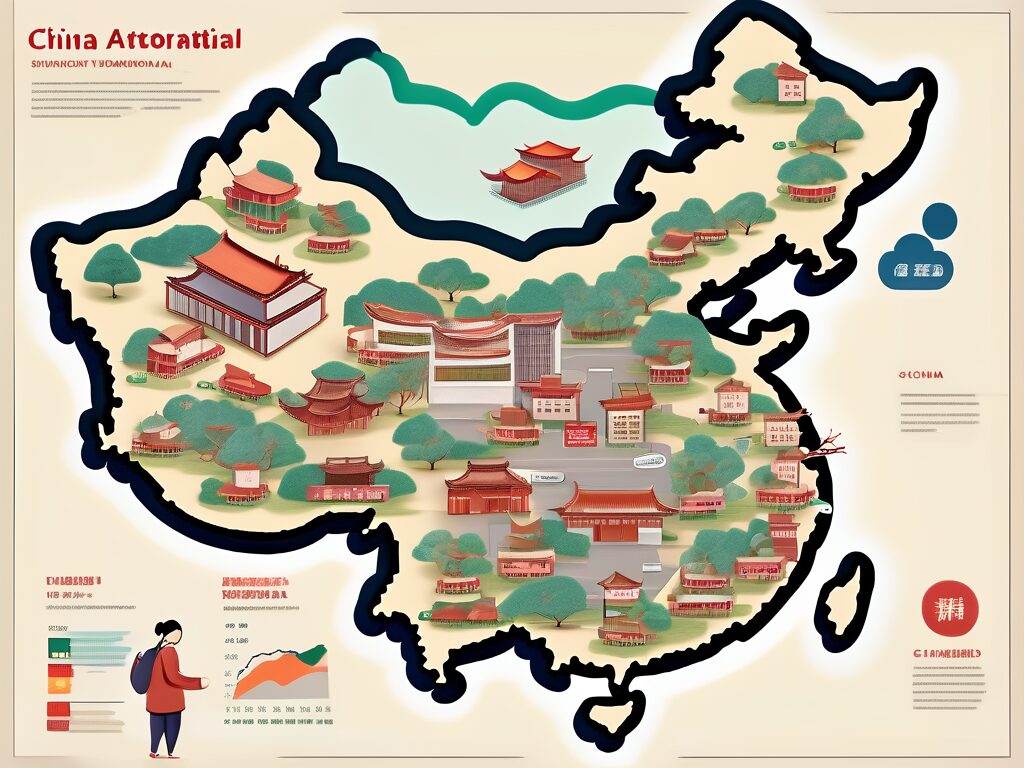Deciding to take up a teaching position abroad is an exciting prospect. However, it’s also a decision that comes with a multitude of considerations. One of the most significant of these is the cost of living. If you’re an IPGCE international teacher considering a move to China, this blog post is for you. We’ll delve into the cost of living in China, providing seven key insights that will help you plan your finances and make an informed decision.
1. Accommodation Costs
Renting
Accommodation is likely to be your biggest monthly expense. In major cities like Beijing and Shanghai, a one-bedroom flat in the city centre can cost between £500 and £800 per month. However, if you’re willing to live a bit further out, you can find cheaper options. For instance, a one-bedroom flat outside the city centre can cost as little as £300 per month.
Buying Property
If you’re planning on staying in China long-term, you might consider buying property. However, be aware that property prices in China’s major cities are high. In Beijing, the average price per square metre in the city centre is around £6,000. That said, property outside the city centre is significantly cheaper, averaging around £3,000 per square metre.
2. Food and Drink
Food in China is relatively inexpensive, especially if you enjoy local cuisine. A meal at an inexpensive restaurant can cost as little as £2, while a three-course meal for two at a mid-range restaurant might set you back around £20. Groceries are also affordable, with a loaf of bread costing around £1 and a litre of milk around £1.50.
Drinks, on the other hand, can vary significantly in price. A domestic beer in a restaurant might cost around £1, while imported beer can be closer to £3. Coffee, particularly at western-style coffee shops, can be relatively expensive, with a cappuccino costing around £3.
3. Transportation
Public Transport
Public transportation in China is incredibly affordable. A one-way ticket on local transport can cost as little as 30p, while a monthly pass typically costs around £15. Taxis are also reasonably priced, with a start fare of around £1 and a rate of about 30p per kilometre thereafter.
Private Transport
If you’re considering buying a car, be prepared for high costs. Cars in China are expensive, with a new Volkswagen Golf costing around £20,000. Petrol is also pricey, at around £1 per litre. Given the affordability of public transport, many expats choose not to own a car.
4. Healthcare
Healthcare in China can be quite expensive, particularly for non-residents. A visit to a general practitioner can cost around £60, while a specialist consultation can be upwards of £100. It’s highly recommended that you secure comprehensive health insurance to cover these costs.
Medication is also relatively expensive, with a box of antibiotics costing around £10. However, it’s worth noting that traditional Chinese medicine is often cheaper and widely available.
5. Education
If you’re moving to China with children, education is another significant cost to consider. International schools can be expensive, with annual tuition fees ranging from £10,000 to £30,000. However, many teaching contracts include an education allowance, which can help offset these costs.
6. Leisure Activities
Leisure activities in China can be as cheap or as expensive as you make them. A cinema ticket, for example, costs around £5. Gym memberships vary widely in price, from £20 per month at a basic gym to £100 per month at a high-end fitness centre. Cultural activities, like visiting museums or historical sites, are generally affordable, with entrance fees typically under £10.
7. Utilities and Internet
Utilities, including electricity, heating, cooling, and water, can cost around £50 per month for a small flat. Internet is relatively cheap, with unlimited broadband costing around £15 per month. Mobile phone plans are also affordable, with unlimited calls and data costing around £20 per month.
In conclusion, the cost of living for IPGCE international teachers in China can vary widely depending on lifestyle and location. However, with careful planning and budgeting, it’s entirely possible to live comfortably and enjoy all that China has to offer.
Elevate Your Teaching Career with IPGCE
Ready to transform your international teaching aspirations into reality? The International Postgraduate Certificate in Education (iPGCE) is your gateway to not just adapting to the cost of living in China but thriving professionally. With our program, you’ll overcome qualification barriers, enjoy a 50% increase in interview callbacks, and unlock a 45% higher chance of promotion. Join a global network of educators, enhance your understanding of international curricula, and seamlessly integrate professional development with your current responsibilities. Don’t let inadequate credentials limit your potential. Join the UK’s #1 Teacher Training Course today and take the first step towards a rewarding career and a better quality of life in China.

